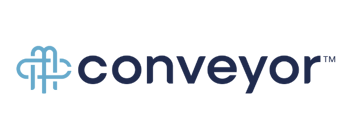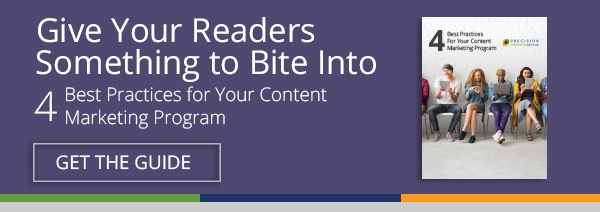I've been doing this copywriting thing for nearly fifteen years, and while many things have changed since 2002, one thing hasn't: I still get nervous conducting interviews. Or "wicked" nervous, as we like to say here in Boston.
Surprising?
It shouldn't be.
Many writers are introverts. We like quiet. We like our alone time. We're not fans of conference calls or web cams.
Seriously, if you ask us to talk on the phone or WORSE—put on pants and go out and talk to people in person—we'll barter, offering to do something much more palatable, like scrub your toilet daily for the next six weeks instead.
But the reality, of course, is that writers need to talk to people by phone, web cams, and even in person on occasion. How else can we write compelling customer stories, insightful white papers, engaging blog posts, and all the other persuasive pieces that make up Content Marketing Magic?
As such, we need to interview subject matter experts (SMEs, as we refer to them in the biz), and we need to do so effectively and efficiently—and without having a nervous breakdown in the process.
Which brings me to the subject of this post: interviewing techniques and tips for the introverted copywriter.
Bottom line, fellow scribblers: you are not alone.
So let's begin, shall we?
Do Your Homework
Seems like a no-brainer, but it can be an easy step to gloss over. After all, you're interviewing the subject matter expert for a reason: to learn something and to convey that info into a readable piece of content, like a blog post. What homework could you possibly have to do?
The short answer: A LOT.
Listen, no one expects you to be an expert going into the interview. But demonstrating working knowledge of the topic, the industry, and/or the person you're interviewing can go a long way at setting a positive tone, which will make the process a lot less painful for you and your interviewee. You'll also feel more confident going in, which can be huge for Nervous Nellies like myself.
PMG copywriter Hilary McCarthy has some excellent pre-interview prep tips, including conducting Google searches on the topic and identifying any trends/news/stats that might be good to include in the piece or during the interview itself.
Hilary also brings up another point, one that's easy to overlook at this early stage: making sure that you understand WHY you're writing the piece in the first place.
In the world of content marketing, each piece of content has a specific purpose. Most often, it should delight the reader (a.k.a. the potential buyer) and help move him or her down the sales funnel.
To that end, Hilary says, "Get in the mind of the customer and understand their pain points. What do they most need to know about this subject? What are they searching on/asking in focus groups, etc.? I often ask interviewees these types of questions as well: what are their customers asking when it comes to this topic? What are they most concerned about? What is most important to them?"
Of course, not all copywriting is about selling. When crafting customer stories or business owner profiles (for example), we need to get at the heart and soul of a specific person.
These profile pieces might require a different type of prep work. PMG copywriter Greg Reid suggests the following: "For profiles, talk around your subject before talking to your subject. Think coworkers, clients, associates in the industry, etc. This is a great way to get more intimate background that can help you plot out your questions."
Send Your Questions in Advance…Or Request an Outline
Speaking of questions, many writers (including this one) send their interview questions in advance. Doing so provides a couple key benefits.
First, some interviewees might prefer answering questions via email rather than over the phone. Email interviews can be extremely efficient, since it cuts down on time and transcription costs. (The main drawback, of course, is that the answers will be more measured and less spontaneous.)
Second, for phone or (gulp) in-person interviews, sending questions in advance helps set expectations.
But as PMG copywriter Allison Woodbury reminded me, the writer isn't always the one driving the topic; sometimes the SME is doing that. In which case, Allison says she requests that the SME send her an outline.
Allison explains that she sends questions or requests outlines, depending on the context, and that both tactics help streamline and improve outcomes: "If the SME is setting the topic, I can wrap my head around/get a baseline knowledge on complex issues. It also helps the interviewee gauge how much we'll cover in the time we have so we can stay on track (helpful for ramblers). Finally, it helps the interviewee organize their thoughts around certain points ahead of time."
(Psst: check out Allison's excellent interview with our creative director, Annette Sparks.)
Follow a Pre-Flight Checklist
You need to find your own interview "rhythm," but here's a short list all writers should consider when getting ready to conduct an interview:
- Turn off anything that will create noise or distractions. Think email notifications, Skype, Facebook, cell phones, pets (barkers and meowers should be out of earshot), etc.
- If you're using a recording device, make sure it's working. I always do a "1-2-3 testing" test on my phone and handheld recorder (don't judge) prior to calling an interviewee.
- Make sure you print out your questions. Highlight the "must ask" ones.
- If you're taking notes on your computer, make sure you open a Word doc, name the file, and save it before starting the interview. Nothing is worse than taking detailed notes in an unsaved file and accidentally backing out of it without saving.
- If you're taking notes by hand, make sure you have extra pens/pencils available. Double check pens before you get started.
- Don't forget water. Have a glass nearby that you can surreptitiously take a swig from if your throat gets dry.
- Alert coworkers and/or anyone in your office that they shouldn't disturb you for a set amount of time. This is especially important if you work from home.
Just Do It
When it comes to interviewing, sometimes the hardest part is getting started.
To that end, Greg offers a great tip: "I like to warm up the subject by saying there are no wrong answers, that you're not out to embarrass anyone, that your readers would really enjoy learning about who the subject is and what they do. Frame the discussion for them: 'I'd like to start with X, then talk about Y, and wrap up with Z. Does that make sense?'"
And PMG copywriter Sharron Senter has a brilliant way to wrap up interviews: "At the end of our interview, I also ask them this one key question: 'Are there any questions that I haven't asked that I should have?' It's within this particular question that spontaneous and further in-depth information can be derived from the interview. Sometimes, both parties may be so focused on their prepared questions and answers that they lose sight of key information that they'd typically share, but forget to, because of the interview's organization. Said another way, ending with spontaneous questions almost always leads to fresh insights and, therefore, fresh content."
Use Tools and Services that Will Make Your Life Easier
I always record my interviews. I use the record feature on my smartphone AND I use an old-school handheld recorder as a backup. Once I finish the interview, I save the recording directly to Dropbox on my phone.
But here's the tool that's truly revolutionized my life: Rev.com.
For me, transcribing interviews has always been a daunting task. It can take me hours—literally hours—to correctly transcribe a 60-minute interview (especially if it's a complex topic).
But Rev.com has changed all that. Simply upload your recording and within 12 hours or so (and often sooner), you get a transcript of the interview. And it only costs one dollar per minute. I've used this service many times for my copywriting work and my own personal writing work. The quality is excellent, and my anxiety level around interviewing has gone way down as a result.
My point: if you're a writer and you need to conduct interviews, choose tools or apps that will help you. I know Rev.com might not be for everyone. (Plenty of writers out there have excellent shorthand and can work from their notes. Not me.)
Know that Glitches Will Happen…And It's OK.
Most people have probably seen this video, but it's so funny (and apt) that we're sharing it again here.
Here's the takeaway: Interview glitches will happen because that's life.
The good news? Life goes on.
Last summer, I was interviewing a doctor about a complicated medical topic and the phone kept cutting out. I had to keep stopping him mid-crackly sentence. We tried three different phones on my end (seriously) until he finally realized the problem was on his end. What should have been a 20-minute interview ended up being over an hour because we had to start over a half dozen times. It happens.
Keep your cool. Keep your sense of humor. And replay that YouTube video above. Trust me: it will make you feel better.
Can you think of any other interview techniques, tips, or tools? Share in the comments. And if you need a writer to conduct interviews with your subject matter experts, look no further than the PMG Copywriter Brigade. Get in touch today and let's talk about your next writing project.




